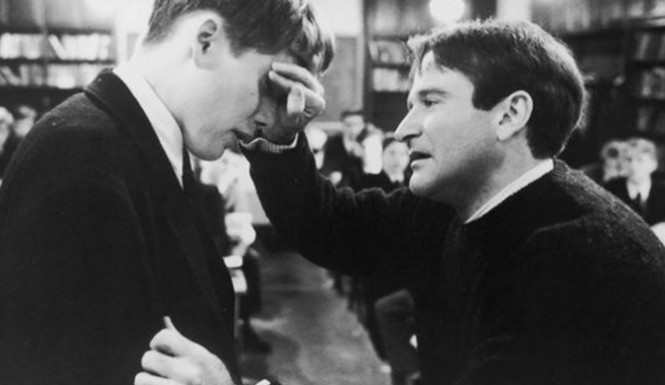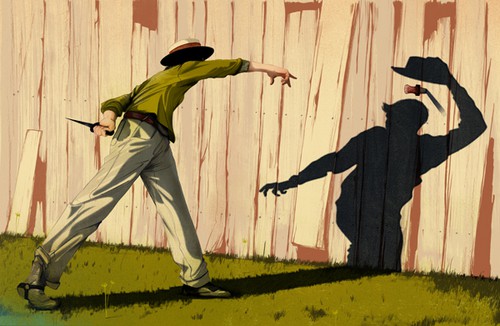
The tenable success of independent films in an industry dominated by major Hollywood productions has become a hot topic as the 87th Academy Awards make their approach. The pulse of this conversation exists entirely because of two names: Wes Anderson and Richard Linklater. With six Oscar nominations between the two of them just this year, and eleven all time, Anderson and Linklater have become the godfathers of the indie family, maturing the clan into planet Hollywood’s lunar necessity.
The praise is proper, but not necessarily sought; at least not in the same way that, say, George Lucas sought success after 1977. Setting up camp in independent territory, for most, means denying a level of fame that has commonly been the end goal in showbiz. An independent director will most likely never take the helm of the highest grossing film of all time. His or hers working budget will always be much less than James Cameron’s, even if they have more originality in the nail of their pinky finger than the Na’vi chieftain. Their’s is a road less traveled; a path that promises a few bumps.
Ethan Hawke, a long time Linklater collaborator who received an Oscar nomination for his role as “Dad” in Boyhood, recently echoed this sentiment in a lengthy interview on Charlie Rose. Around the 18:40 mark, Hawke begins to speak about the value of wisdom. Drawing from Tom Brady’s recent fourth Super Bowl victory he says:
They’re asking him (Tom Brady) about the value of the Super Bowl, and, ‘why not retire?’ but you get this sense that a lot of us don’t know what we’re doing if we’re not engaged in the game. What are we living for besides this superficial element? We know what’s superficial, but we don’t know what isn’t superficial.
Immediately after he says this, Rose switches gears and shows a scene of Hawke acting with the late Robin Williams from The Dead Poets Society. When the clip ends, Hawke is understandably emotional, almost as if he had just watched an old home video of him as a child playing with his deceased father. “Remember that?” Rose asks. Hawke just nods his head, possibly holding back tears. “What did that mean to you?” Rose continues. “Everything.” Hawke’s tone has changed: more somber, less energetic. He then recites the Sparknote version of his past, reciting how his acting dreams sprouted when he was a child. He reaches the moment in his life that where he found himself on a set with Robin Williams and says:
That was the first time I ever acted. You know, I had posed before or I imitated somebody, but you know… we had mentioned earlier, it’s the great celebration of the self that goes around acting that is kind of toxic to the performer. The real joy of acting is losing yourself.
Ethan seems to imply that the true joy of acting does not come from adulation of “self”, but from what happens when that self is killed, and along with it, any desire for self-glorification. This joy is not found, or received, in the transplanting of one’s self temporarily into a learned character; in order to experience the freedom of “new life” within a given role, the actor must vehemently expel their “self”. This, of course, requires the actor to understand their self is toxic to the craft/performance–a inducement to decay rather than an advancement toward success. Though it may not have been purposeful, Hawke’s words tap a beat similar to the crescendo composed in Matthew 16:24-25, when Jesus rebukes Peter for his commitment to himself:
Then Jesus said to his disciples, ‘Whoever wants to be my disciple must deny themselves and take up their cross and follow me. For whoever wants to save their life will lose it, but whoever loses their life for me will find it.
A.W. Tozer spoke about this denial in his book The Pursuit of God:
…it would seem that there is within each of us an enemy which we tolerate at our peril. Jesus called it “life” and “self”, or as we would say, the self-life. Its chief characteristic is its possessiveness: the words “gain” and “profit” suggest this. To allow this enemy to live is to in the end lose everything. To repudiate it and give up all for Christ’s sake is to lose nothing at last, but to preserve everything unto life eternal. And possibly also a hint is given here as to the only effective way to destroy this foe: it is by the Cross. ‘Let him take up his cross and follow me.’
Through years spent in an industry that swaddles pride and holds it close to the breast, it would appear that Ethan Hawke has seen and felt the confinement that comes with self worship. He knows firsthand that acknowledging our toxicity to ourselves can be a jail-breaking awareness, that freedom from self is often the first step on the way to freedom for self.
Watch Ethan Hawke’s full interview with Charlie Rose below.

COMMENTS
Leave a Reply














